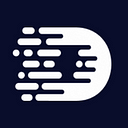Democracy evolution: From the Board of Directors to the DAO Council

Corporate Governance Motivation
Historically, a board of directors is a group of people elected by a company’s shareholders to represent their interests.
From behavioural prospective, a board is a collection of individuals trying to operate as a group. Functioning as a group is something many people are not comfortable with. Thus, each board evolves with its own culture. Each culture is dictated by the backgrounds of the individuals on the board. Therefore, we might assume that a certain decision bias programmed here by definition.
Generally talking business, the board has the responsibility of developing a governance system for the business, defining strategic directions, controlling and incentivising the company management.
In contrary, DAO rely on set of smart contracts, it does not have a physical address, nor people in formal management roles. The target architecture is that the DAO is removing delegated power from board directors and placing it directly in the hands of owners. By doing this, the DAO removes the ability of board directors and fund managers to misdirect and waste investor funds.
Thus, DAO is just the digital version of the above mentioned Board of Directors where all rules & regulation are written in the source code rather than the piece of paper.
And here also a democratic governance incorporated: There is a council with members having some tokens which represents the shares of the DAO. These tokens can also be used to vote in the DAO to take a certain decision. The more token an address has, the more control he will have on the DAO. Each member will have the rights to submit the proposal to take certain decisions.
Moreover, the voting power can be optionally delegated to someone to whom a member trust more. This is in fact just like voting by proxy in the real world organisations.
On top, an open-source protocol can be implemented to define more sophisticated governance principles which are auditable, censorship-resistant and anonymous due to underlying DLT. Moreover, a simple DAO can be implemented as a multi-signature account with a votes threshold required to perform the operation.

Benefits of DAOs
How to ensure scalable and high-speed governance that blocks bad actors?
DAO governance assumes that all actions are legitimate unless proven otherwise. In practice, this means that governance becomes a never-sleeping factory of proposals that are scheduled as on-chain transactions to execute by default unless they are specifically challenged by Council.
In the nutshell, to establish DAO:
- You need to define the overall target and parameters of your community
- To execute control, e.g. transfer of funds can be limited to some addresses as Council members
- Some “thinking” delays might be implemented to give a chance to each Council member to challenge proposals. A successful challenge will cancel the transaction.
- Some collateral defined by the DAO is required to schedule a transfer of DAO funds. This is refunded at the close of the execution window unless someone has successfully challenged the transaction, in which case it will be forfeited to the ecosystem fund.
Furthermore, DAO itself can be tokenised and DAO tokens can be allocated to multiple accounts. DAO tokens can have both governance and voting rights, as well as yield farming instruments.
Summarising, we’ve learned about new democratic governance realised in form of DAO and its Council featuring unparalleled high-speed fair decision-making.
Welcome to the wonderful DAO world powered by DEIP!
